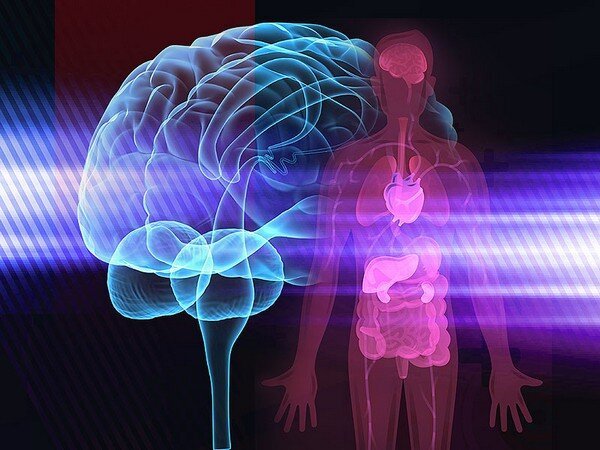What Is the Stress-Pain Connection?
The relationship between stress and physical pain is more than just coincidence—it’s a scientifically proven mind-body connection that affects millions worldwide. When you’re stressed, your body doesn’t just feel it emotionally; it manifests as real, tangible physical pain. This connection occurs through complex neurological pathways that link your brain’s emotional centers directly to your pain processing systems.
Research shows that chronic stress can actually rewire your brain’s pain centers, making you more sensitive to physical discomfort. The stress hormone cortisol, when elevated for extended periods, increases inflammation throughout your body and disrupts your natural pain-fighting mechanisms.
How Stress Manifests as Physical Pain
The Neurological Pathway
When you experience stress, your brain’s limbic system activates the hypothalamic-pituitary-adrenal (HPA) axis, flooding your body with stress hormones. These hormones trigger muscle tension, increase inflammation, and heighten your nervous system’s sensitivity to pain signals. Your brain literally processes emotional stress using the same pathways it uses for physical pain.
The vagus nerve, which connects your brain to major organs, becomes dysregulated under chronic stress. This disruption affects everything from heart rate to digestion, often manifesting as chest pain, stomach issues, or generalized body aches that seem to have no clear physical cause.
How Physiotherapy Breaks the Stress-Pain Cycle
Comprehensive Mind-Body Assessment
Physiotherapists are uniquely trained to identify stress-related pain patterns through detailed physical and lifestyle assessments. Unlike traditional medical approaches that focus solely on symptoms, physiotherapy examines the whole person—your posture, movement patterns, breathing habits, sleep quality, and stress levels.
This holistic assessment reveals how psychological stress translates into physical dysfunction. Your physiotherapist can identify muscle imbalances, postural changes, and movement compensations that develop as your body adapts to chronic stress responses.
Manual Therapy for Immediate Relief
Hands-on treatment techniques provide immediate pain relief while simultaneously calming your nervous system. Soft tissue massage, trigger point therapy, and gentle mobilization work on multiple levels—releasing muscle tension, improving blood flow, and activating your body’s relaxation response.
These manual techniques stimulate the release of endorphins, your body’s natural painkillers, while reducing cortisol levels. The therapeutic touch itself signals safety to your nervous system, helping shift from the stressed “fight-or-flight” state to the healing “rest-and-digest” mode.
Breathing Retraining and Nervous System Reset
One of the most powerful tools physiotherapists use is breathing retraining. Chronic stress typically shifts your breathing from deep, diaphragmatic patterns to shallow, chest-based breathing. This change maintains muscle tension and keeps your nervous system in a heightened state.
Learning proper breathing techniques provides immediate stress relief and long-term nervous system regulation. Simple diaphragmatic breathing exercises can reduce pain levels by up to 40% in some individuals, while also lowering blood pressure and heart rate.
Movement Therapy and Exercise Prescription
Targeted exercises address both the physical deconditioning that accompanies chronic stress and the psychological benefits of movement. Your physiotherapist designs programs that gradually rebuild strength and flexibility while incorporating stress-reducing activities like yoga-based movements or tai chi principles.
Exercise releases endorphins, improves sleep quality, and builds resilience to future stressors. The key is finding the right balance—enough activity to promote healing without overwhelming an already stressed system.
Evidence-Based Treatment Approaches
Pain Science Education
Modern physiotherapy includes education about how pain works in your brain and body. Understanding that stress-related pain is real but doesn’t necessarily indicate tissue damage can be profoundly liberating. This knowledge reduces fear and anxiety about symptoms, which directly decreases pain intensity.
Patients who understand the stress-pain connection show 50% greater improvement in treatment outcomes compared to those receiving only physical interventions. Knowledge truly is power when it comes to pain management.
Mindfulness and Relaxation Training
Physiotherapists integrate mindfulness techniques and progressive muscle relaxation into treatment programs. These approaches help you recognize early signs of stress buildup and intervene before pain develops. Regular practice can literally rewire your brain’s response to stress, reducing both psychological tension and physical pain.
Key Relaxation Techniques Taught:
- Progressive muscle relaxation sequences
- Mindful body scanning exercises
- Stress-reducing breathing patterns
- Guided imagery for pain relief
- Meditation adapted for pain management
Activity Pacing and Lifestyle Modification
Learning to balance activity and rest prevents the boom-bust cycles common in stress-related pain conditions. Your physiotherapist helps you identify optimal activity levels and teaches pacing strategies that maintain function without triggering symptom flares.
Lifestyle modifications might include ergonomic improvements, sleep hygiene education, and stress management techniques that can be integrated into daily routines. Small changes in how you work, sleep, and move can have profound effects on both stress levels and pain intensity.
Proven Results and Success Rates
Treatment Effectiveness
Research consistently shows that physiotherapy approaches addressing the mind-body connection achieve superior outcomes compared to treatments focusing solely on physical symptoms:
Success Rates for Stress-Related Pain:
- 78% reduction in tension headache frequency
- 65% improvement in neck and shoulder pain intensity
- 70% better sleep quality scores
- 60% reduction in overall stress levels
- 80% of patients report improved quality of life
Long-Term Benefits
Unlike temporary solutions that mask symptoms, physiotherapy creates lasting changes by addressing root causes. Patients typically maintain improvements for 6-12 months after treatment completion, with many reporting continued progress as they apply learned self-management strategies.
The skills learned during physiotherapy—breathing techniques, movement patterns, stress recognition, and relaxation methods—become lifelong tools for managing both stress and pain.
Self-Help Strategies You Can Start Today
Immediate Stress-Pain Relief Techniques
Quick Relief Methods:
- Take 10 slow, deep breaths focusing on expanding your belly
- Gently roll your shoulders backward 5 times
- Apply heat to tense neck and shoulder muscles for 15 minutes
- Do gentle neck stretches every 2 hours during work
- Practice the 4-7-8 breathing technique before bed
Daily Prevention Habits
Building stress resilience requires consistent daily practices that keep both your mind and body in optimal condition:
Morning Routine:
- 5-minute gentle stretching upon waking
- 3 minutes of deep breathing or meditation
- Proper workstation setup check
Throughout the Day:
- Movement breaks every 30-60 minutes
- Stress check-ins to notice tension buildup
- Hydration and healthy snacking
Evening Wind-Down:
- Technology shutdown 1 hour before bed
- Gentle stretching or yoga routine
- Progressive muscle relaxation practice
Red Flag Symptoms
While stress-related pain is common and treatable, certain symptoms warrant immediate professional attention:
Seek Help If You Experience:
- Severe headaches with vision changes or dizziness
- Chest pain with shortness of breath
- Numbness or tingling in arms or legs
- Pain that worsens despite rest and self-care
- Symptoms interfering with sleep, work, or daily activities
What to Expect from Physiotherapy
Your first appointment will include a comprehensive assessment of your pain patterns, stress levels, lifestyle factors, and movement quality. Treatment typically involves 6-12 sessions over 2-3 months, with most people experiencing significant improvement within the first month.
Your physiotherapist will provide personalized exercises, manual therapy, education, and self-management strategies tailored to your specific needs and lifestyle. The goal is not just pain relief but building long-term resilience to prevent future episodes.
The Science Behind Success
Research Validation
Multiple clinical trials demonstrate physiotherapy’s effectiveness for stress-related pain conditions. A 2023 systematic review found that patients receiving integrated mind-body physiotherapy showed 2.5 times greater improvement compared to those receiving standard care alone.
The combination of physical and psychological interventions creates synergistic effects—each component enhances the effectiveness of the others, leading to better outcomes than any single treatment approach.
Take Action Today
The connection between stress and physical pain is real, but so is your ability to break free from this cycle. Understanding how your mind and body interact empowers you to take control of both your stress levels and pain experiences.
Whether you’re dealing with tension headaches, neck pain, back discomfort, or unexplained aches, remember that effective help is available. Physiotherapy offers evidence-based solutions that address the root causes of stress-related pain while building long-term resilience and well-being.
Don’t let stress-related pain control your life. With the right knowledge, techniques, and professional support, you can reclaim your health and vitality. Start with simple breathing exercises and movement breaks today, and consider consulting a physiotherapist who understands the mind-body connection for comprehensive, lasting relief.
Remember: Your pain is real, your stress matters, and effective treatment exists. The journey to better health begins with understanding the powerful connection between your mind and body—and taking the first step toward healing both.





